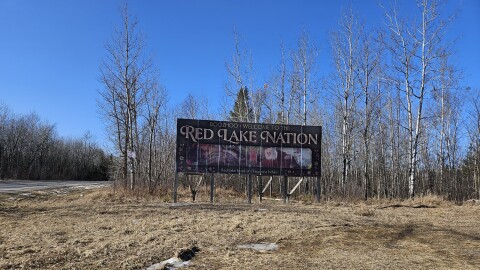The Minnesota Department of Natural Resources is asking those who spend time outdoors to report the locations of occupied bear dens they encounter near the Brainerd and Duluth areas.
Bear researchers with the DNR and University of Minnesota Duluth hope to fit additional bears with GPS tracking collars this winter.
The purpose of the research is to document bear movements on the landscape and assess the age of first reproduction.
In a news release, DNR bear project leader Andy Tri said collaring bears now would allow researchers to gather an entire year of movement data.
"Getting a few bears collared in winter would really help these studies," he said.
Anyone finding a den in these areas should obtain a GPS location if possible and call DNR bear research in Grand Rapids at 218-328-8879 or 218-328-8874.
The DNR also has an online tool that allows people to report bear sightings, though this is separate from the bear den study.
Research helps the DNR better understand factors that cause bear populations to change, it said, allowing it to better manage and conserve the species.
Identifying how old bears are when they first start reproducing is "critical" to keeping tabs on the population and setting harvest quotas.
"Ultimately, we would like to use the information we gather to help reduce human-bear conflicts and promote coexistence," said Michael Joyce, UMD wildlife ecologist.
-
And: Walz releases anti-fraud package after Trump administration announces Minnesota Medicaid cuts; Rachel Anthony murder still unsolved after 25 years; Staples-Motley are state wrestling champs.
-
The Boys and Girls Club of Bemidji Area operates a branch at J.W. Smith. Families and staff are concerned about the future of the grant-funded program if the school closes.
-
Darrin Smedsmo's vintage aircraft was impounded following an emergency landing within the Red Lake Nation in October 2025, and he is still waiting for a day in tribal court.
-
The package has 18 proposals, including prohibiting legislators from making direct appropriations to nonprofits and establishing a centralized Office of Inspector General.
-
The four teams will represent rural Northern Minnesota in the state tournament March 4-7, 2026, in the Twin Cities.
-
The Cardinals' dominant run at the state tournament ended with another championship Feb. 26, 2026. United North Central's more mixed results resulted in a fifth-place finish.













